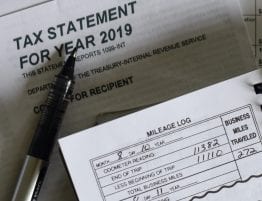
Introduction to IRS Collection Standards
Updated information to reflect 2023 IRS standards.
Did you know the IRS utilizes Collection Financial Standards to determine the financial capability of a taxpayer? These standards help determine the suitable collection method to recover the tax debt. The Collection Financial Standards are applied to various collection methods, including Installment Agreements, Currently Not Collectible status, and Offer in Compromise.
Exceptions to the application of IRS Collection Financial Standards occur when a taxpayer has sufficient equity in assets to pay the tax debt fully or when the taxpayer is eligible for Guaranteed or Streamline processing.
In all other cases, the IRS requests detailed information about the taxpayer’s basic living expenses to calculate their ability to pay.
National Standards
The National Standards cover essential expenses such as food, clothing, and other items. These standards apply nationwide, and taxpayers are allowed the total National Standards amount monthly for their family size without providing proof of the amount spent.
For the current year of 2023, the National Standards amounts are as follows:
- Per the IRS, Food, Clothing, Housekeeping Supplies, and Other Items:
- $841 per month for one person
- $1,389 per month for a two-person household
- $1,700 per month for a three-person household
- $1,993 per month for a four-person household
- Add $356 per month for each additional person beyond four
Out-of-Pocket Health Care Expenses
Acknowledging the high costs of healthcare, the IRS allows a minimum amount for out-of-pocket healthcare expenses. Taxpayers and their dependents can claim the standard monthly per person without proof of the amount spent. Out-of-pocket health care expenses include medical services, prescription drugs, and medical supplies (e.g. eyeglasses, contact lenses, etc.).
The current out-of-pocket healthcare standards for 2023 are:
- Individuals under 65: $79 per month
- Individuals 65 and older: $154 per month
Additionally, taxpayers are allowed to claim the full amount of their health insurance premiums, regardless of the level of coverage. The IRS does not differentiate between different insurance plans when considering the health insurance premium.
Transportation Standards
Taxpayers are permitted a monthly expense for either public transit or vehicle ownership, but not both. A maximum of one car payment is typically allowed for individuals, while multi-person households are generally allowed a maximum of two vehicles. However, additional vehicles may be considered on a case-by-case basis.
The transportation standards consist of two parts: ownership costs and operating costs. Ownership costs are the maximum allowances for monthly loan or lease payments and apply nationwide. Operating costs cover expenses such as insurance, maintenance, fuel, and registration and vary based on the taxpayer’s local area.
The 2023 transportation standards include:
- Ownership Costs (maximum monthly lease or car payment):
- $629 per month, per vehicle
- Operating Costs (varies by region and local area):
- Refer to the IRS Transportation Standards webpage for specific regional and local operating expense limits.
Housing and Utilities
The housing and utilities standards are based on location and cover expenses related to mortgage or rent, property taxes, insurance, maintenance, utilities, repairs, gas, electric, water, heating oil, garbage collection, residential telephone service, cell phone service, cable television, internet service, and other housing-related costs. These standards are derived from U.S. Census Bureau and Bureau of Labor Statistics data and vary by state and county.
To find applicable housing and utilities standards, visit the IRS Housing and Utilities Standards webpage and select the appropriate state and county.
Application of IRS Collection Financial Standards
Understanding these standards is crucial for representing individual tax debtors in front of the IRS. The standards are applied on the Income and Expense Table (IET) found in various IRS forms, including Form 433-A, Form 433-F, and Form 433-A(OIC).
It’s important to note that the IRS updates these standards annually, typically by the end of March each year. Staying updated with the latest standards is essential, so it’s recommended to regularly review the IRS Collection Financial Standards webpage for any changes.
Disclaimer: The information provided is accurate as of the date of publication, but it’s always advisable to consult the IRS website or one of our tax professionals for the most up-to-date guidelines and requirements.
Fill out the form for a free and confidential consultation.








